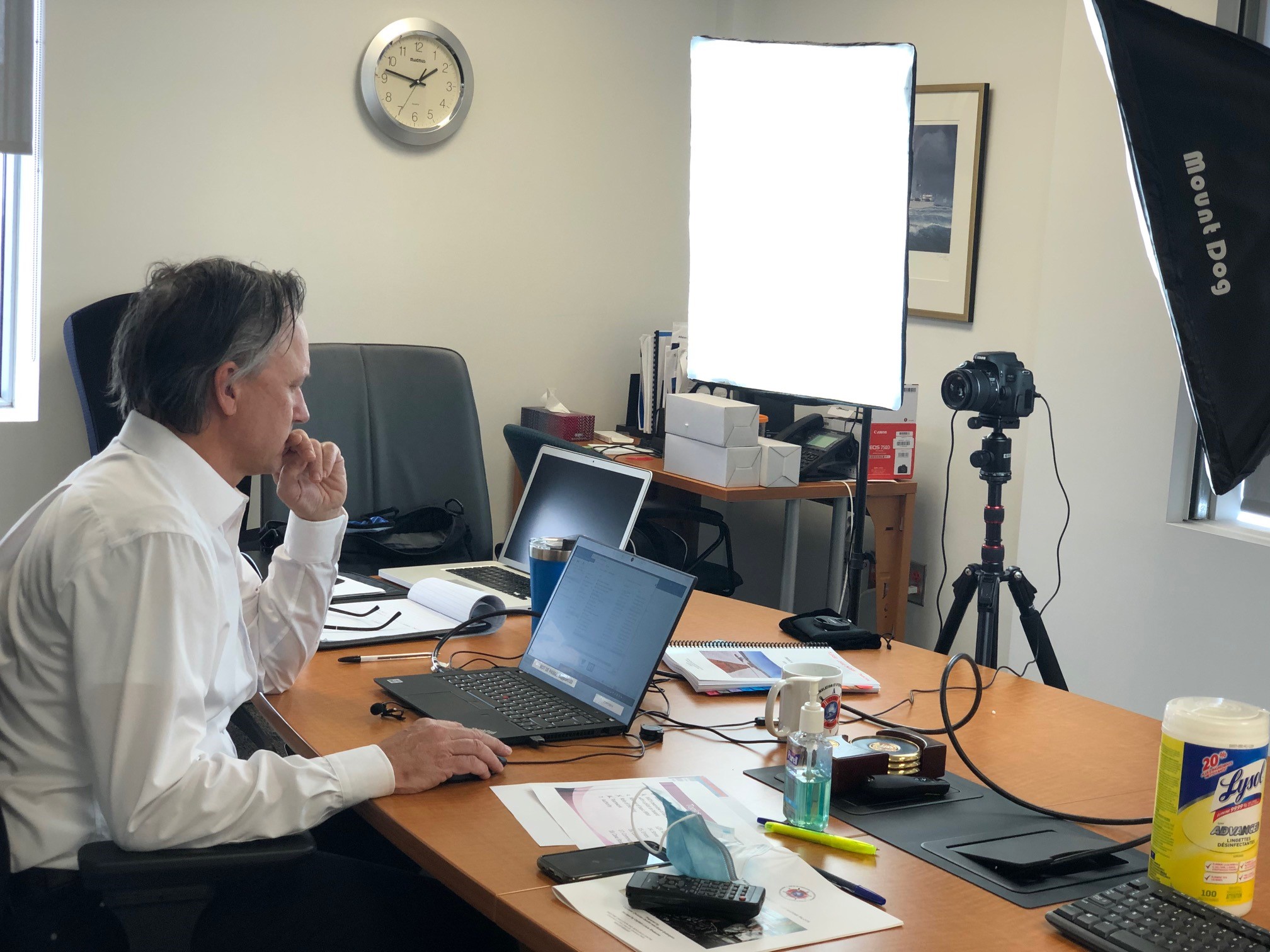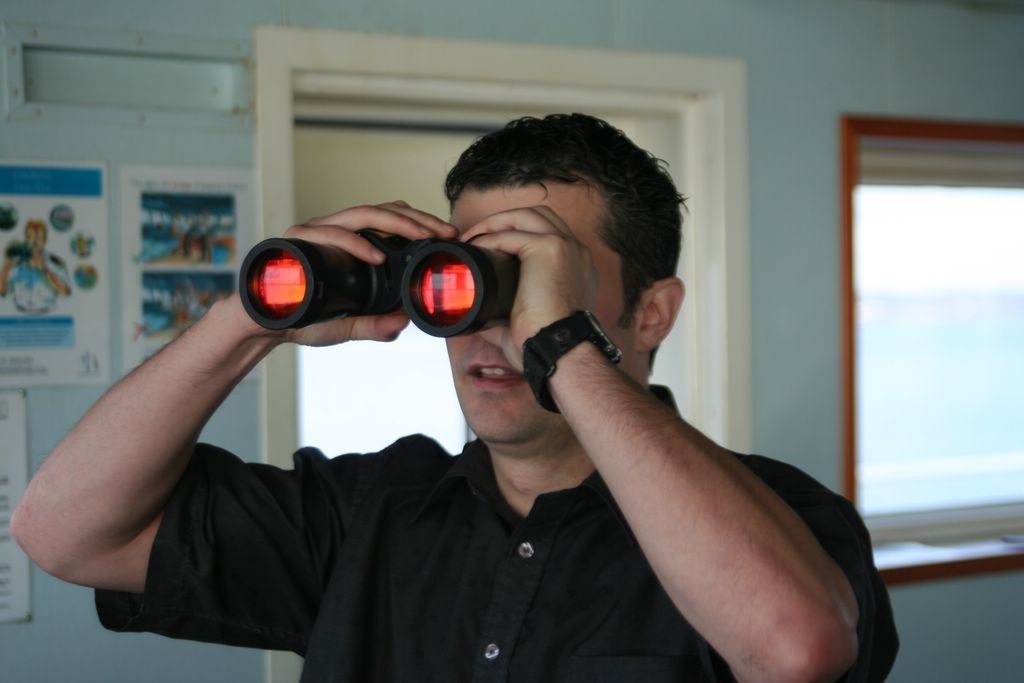The MSRC offers its first Bridge Resource Management for Pilots (BRM-P) course online
17 May 2021Interview with MSRC instructor and member of the Corporation of Lower Saint Lawrence Pilots, Captain Daniel Ouimet
The BRM-P course is usually given in class, but with the pandemic, the MSRC has adapted and now offers some training online.
Q– How was your first experience as an instructor in this online environment?
A– I really enjoyed the experience. There was some initial adjustment to the platform for delivering the course, but once I got the hang of it, it went very well.
Q– Is this type of training easy to adapt for teaching online?
A– When they are lecture courses, as is the case with BRM-P, they are very easy to adapt for online teaching. The MSRC offers three such courses: BRM-P 1, BRM-P 2 and SEAiq.
Due to the “hands-on” nature of the other courses offered by the MSRC, which require participants to perform manoeuvres on the simulators, it would not be feasible, at least at this time, to offer them online.
Q– Do you see a difference with participant engagement? That is, do participants seem more comfortable engaging or participating in discussions?
A– To answer this question, we need to consider some technical aspects. Indeed, when asking participants in an online course to have a discussion, you have to be strategic. Otherwise, the effect will be quite cacophonous!
One way to proceed is to name those individuals who wish to share with the group, so that they can take turns speaking. This is a little less spontaneous, but still doable.
Q– Do you think online courses are as effective as face-to-face courses? That is, can students achieve the same learning outcomes as in the classroom?
A– In terms of content delivery, that’s a resounding “yes.” Online courses are not a new concept; universities have been offering them for a few years now and their effectiveness has been proven. The same is true for the learning outcomes of participants.
The high level of preparation by experienced pilots ensures high quality, relevant content, which helps to engage and maintain participant interest.
It is, of course, a bit more demanding for the instructor who does not have the benefit of direct classroom contact with the participants to fuel the discussions.
Q– In your opinion, what are the most important advantages of online training?
A– The answer is simple; it is an economic advantage. Participants do not have to pay for travel and hotel costs. However, there may be a time difference to contend with.
Q– In the future, after the pandemic, would it be relevant for the MSRC to continue offering online training? Why?
A– I believe it would be very relevant to continue offering online training for lectures courses since it would allow the MSRC to develop new international markets and to reach groups for whom travel costs would be prohibitive.
CAPTAIN DANIEL OUIMET
A graduate of the Institut maritime du Québec, Captain Ouimet began his maritime career as an officer on board various commercial vessels until 1996. He joined the Corporation of Lower Saint Lawrence Pilots (CLSLP) in 1998 and became a class “A” pilot in 2006, a docking pilot in secondary ports in 2007 and a docking pilot in the port of Quebec in 2013. Daniel has shown a keen interest in participating in the development of the pilot profession not only by practising the profession with commitment, but also by participating as a member of the CPBSL Board of Directors from 2004 to 2007, as Vice-Chairman of the Board from 2007 to 2010 and as Chairman of the Board from 2010 to 2013. Captain Ouimet has also been acting as a pilot instructor at the Maritime Simulation and Resource Centre since 2017.



